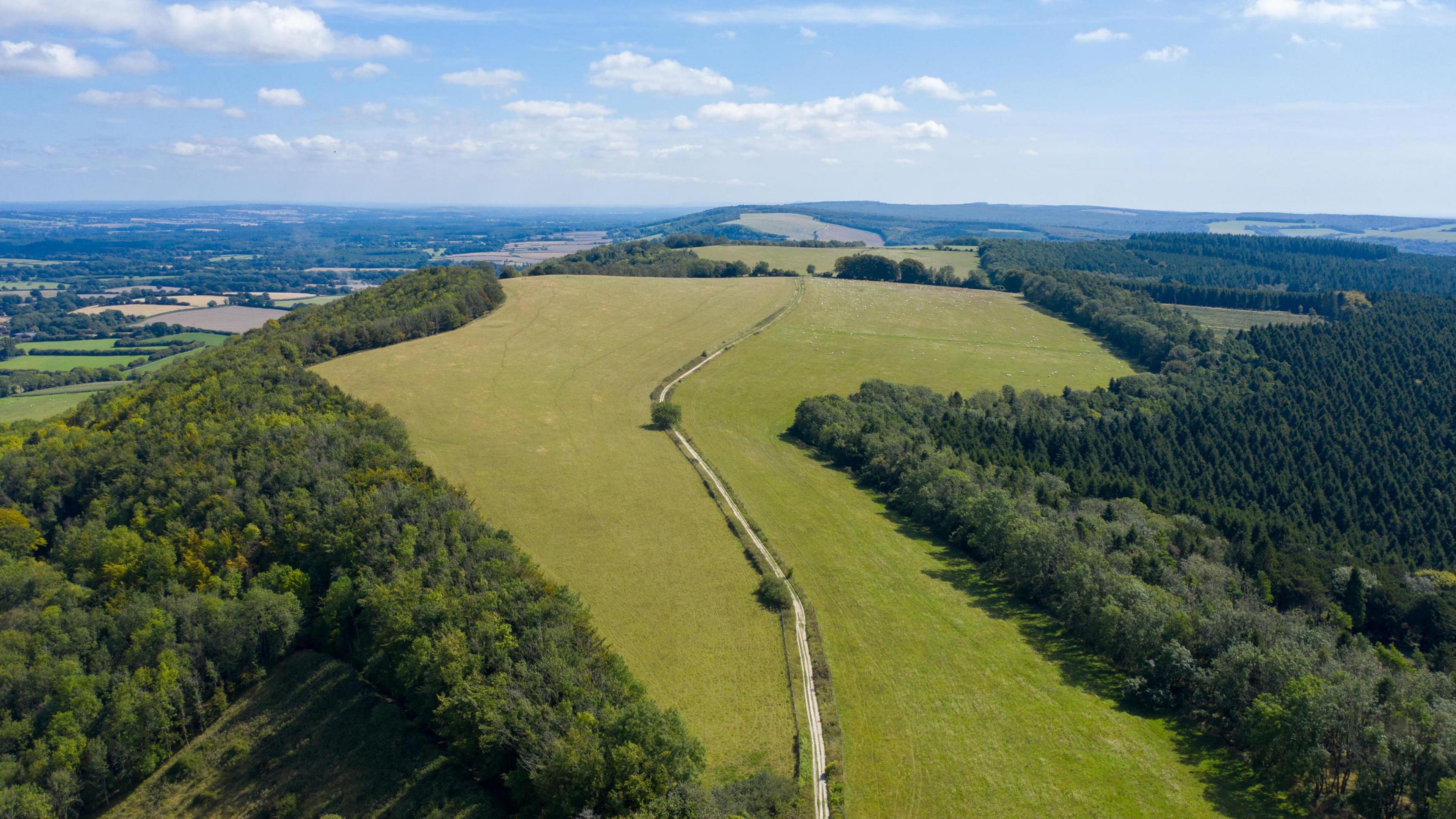Water vole numbers success at national park
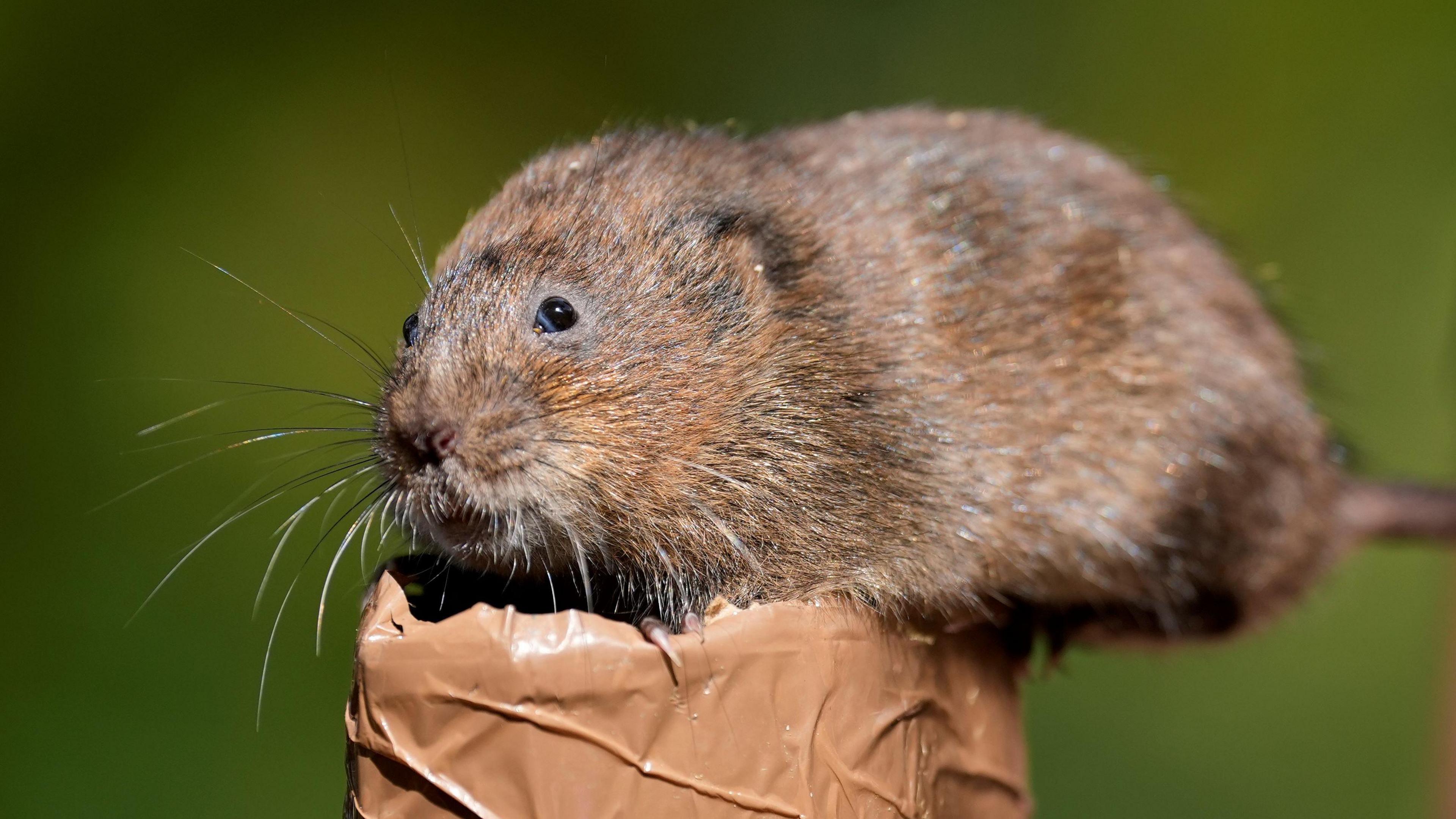
There have been more than 2,500 signs of water vole activity along the River Meon
- Published
A project to reintroduce water voles to South Downs National Park has been declared a success after new signs of activity were spotted.
More than 2,800 of the creatures have been released along the River Meon in Hampshire since 2013.
Popularised by the character Ratty in The Wind in the Willows, the water vole is the fastest declining mammal in England.
Signs of breeding were seen at 20 areas along the river and its tributaries.
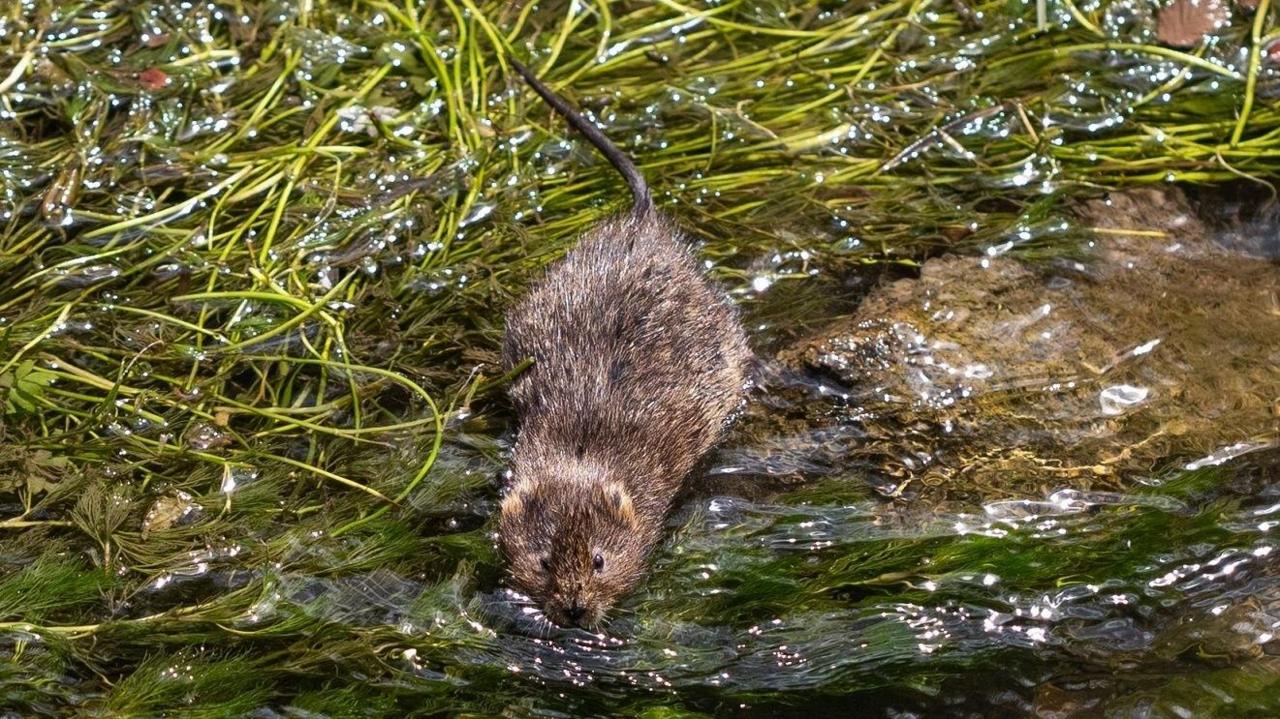
Water voles help create flower-rich wetland habitats for insects such as bumblebees, moths and butterflies
Led by The Meon Valley Partnership, the survey found evidence of water voles at 27 sites, with the highest concentration seen in West Meon, Funtley and the Titchfield Haven Nature Reserve.
Numbers have been dropping in recent years because of habitat loss.
The species has also been threatened by the American mink, a non-native predator.
Dr Rowenna Baker, who carried out the survey with the help of national park volunteers, said it was "fantastic" to see that the rodents were colonising the new habitat.
"The abundance of field signs show that water voles are now thriving on the River Meon and this is incredibly important when nationally their future still remains uncertain," she added.
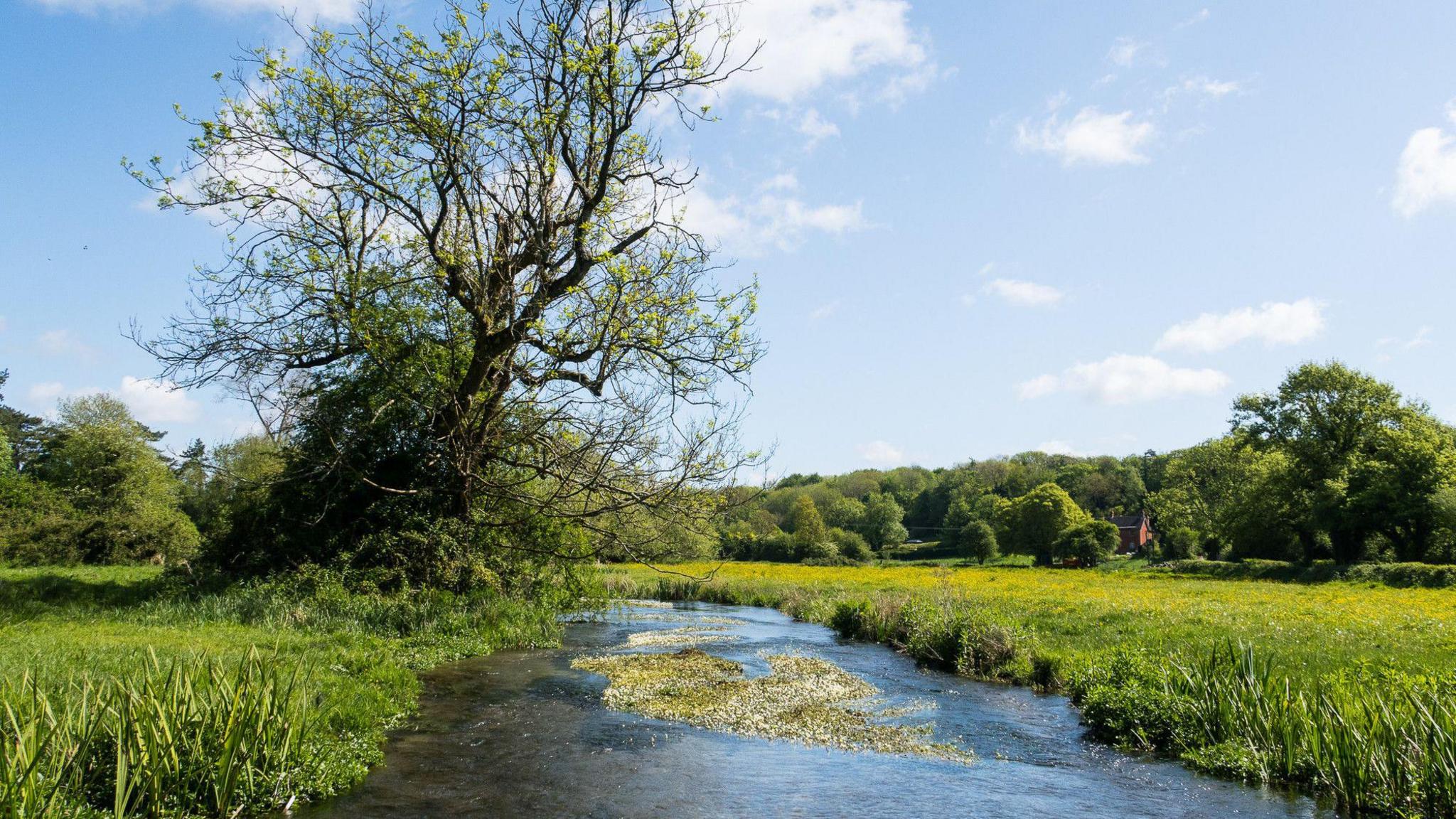
The South Downs National Park stretches from Winchester in Hampshire to Eastbourne in East Sussex
Elaina Whittaker-Slark, lead ranger for the Hampshire area of the national park, said reintroductions were not always successful.
"It's a good indicator of the overall health of this very rare chalk river, which has really turned a corner in the past decade or so after water voles were considered locally extinct back in 2003," she said.
Water voles are important to river habitats because they act as food for predators like otters, herons and marsh harrier, according to a national park spokesman.
Their complex underground structures are also used as refuges by a range of other small mammal species, reptiles, amphibians and insects.
Get in touch
Do you have a story BBC Hampshire & Isle of Wight should cover?
You can follow BBC Hampshire & Isle of Wight on Facebook, external, X (Twitter), external, or Instagram, external.
Related topics
More from the BBC
- Published16 September 2024
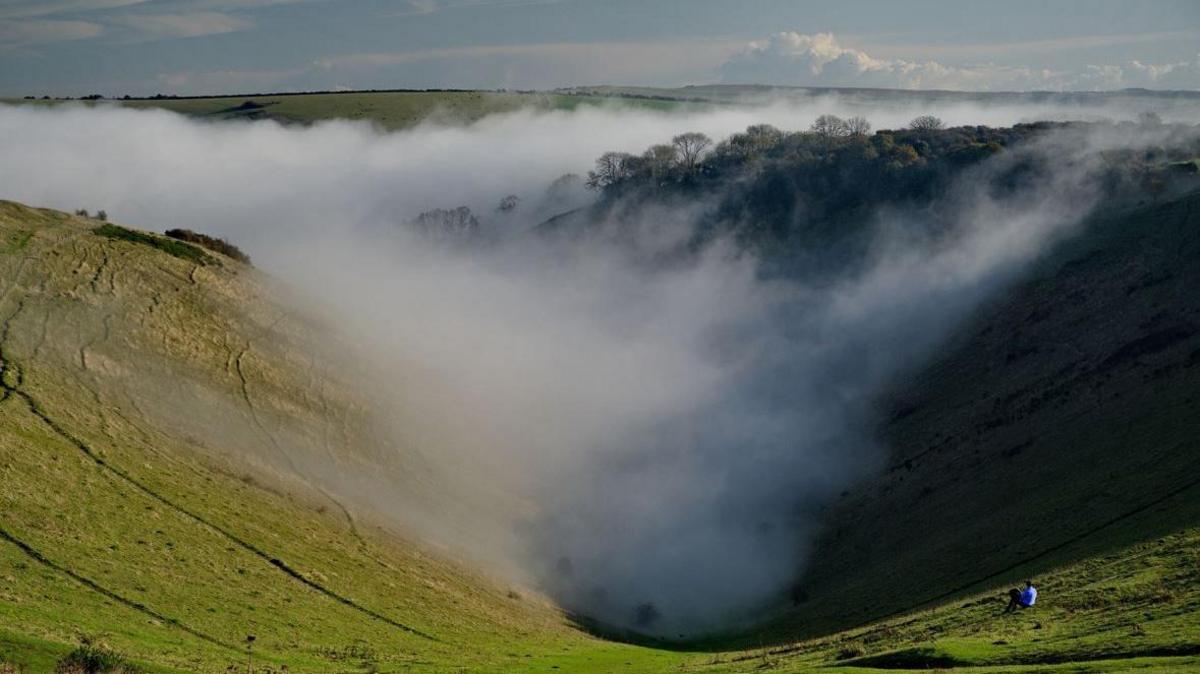
- Published14 July 2024
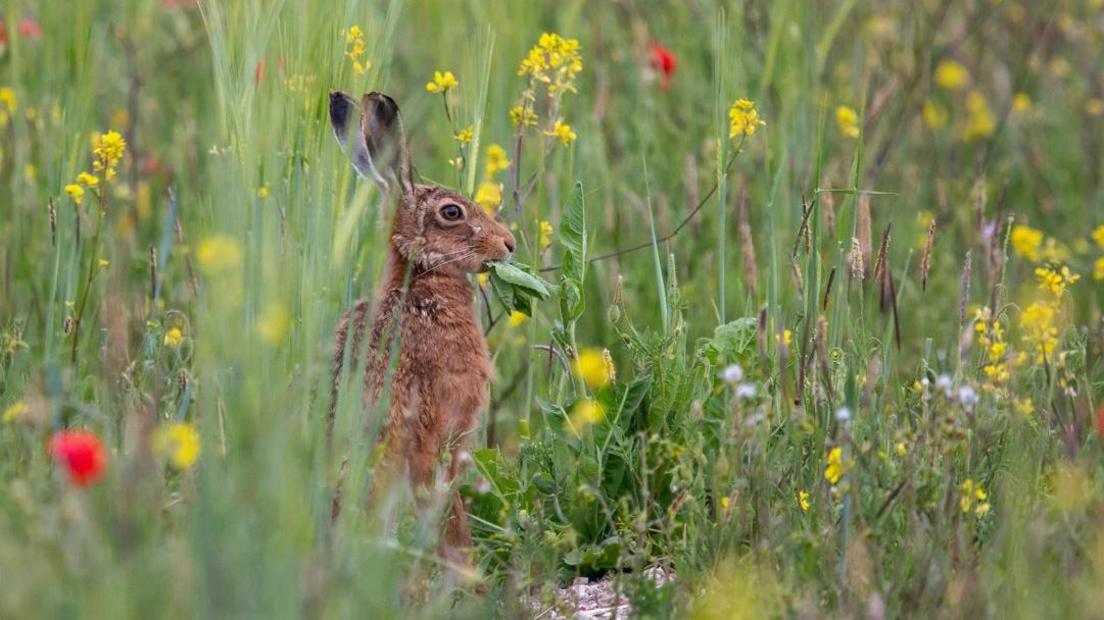
- Published27 May 2024
